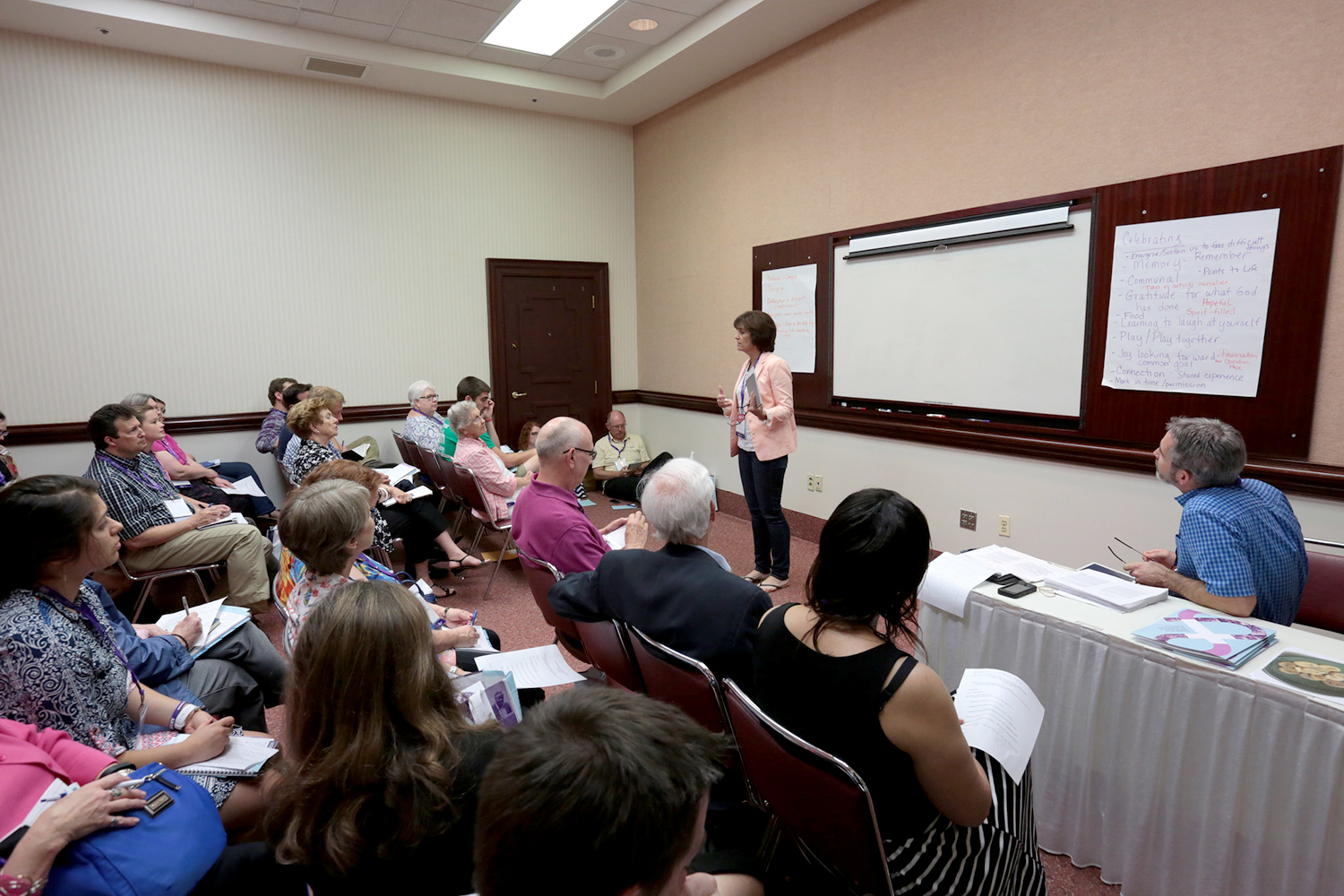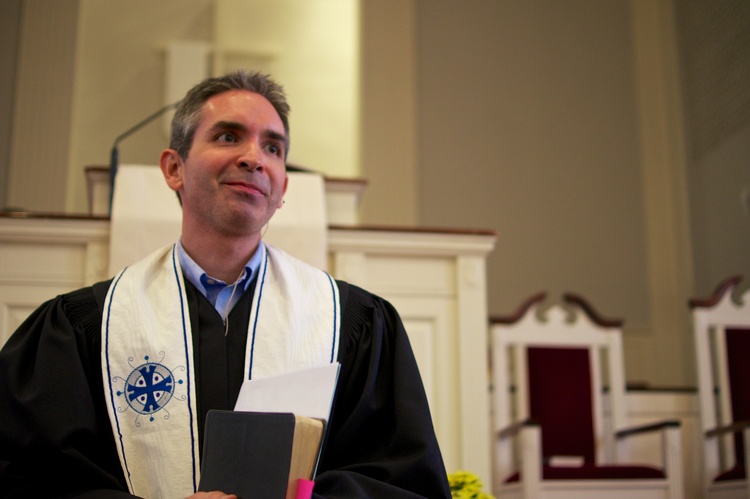Spiritual formation usually brings to mind practices like contemplative prayer and fasting, silence and meditation, walking the labyrinth and celebration.
Wait, celebration?
You bet, say Jayne Davis and Rick Bennett, Cooperative Baptist Fellowship ministers who share a passion for spiritual formation and a mission to convince churches to approach celebration more intentionally.
In the sacred context, celebrating doesn’t mean cheering a team’s win or the round of drinks after getting that big promotion. Rather, it’s about marking God-focused milestones in the lives of congregations and individuals.
“It’s about looking back and noticing where God has been in our midst and celebrating what God is doing or where God is present,” said Davis, the minister of spiritual formation at First Baptist Church in Wilmington, N.C.
“So the discipline of celebration is keeping God at the center of our lives and taking time to reflect and to be joyful,” she told Baptist News Global.

Jayne Davis, standing, and Rick Bennett, seated at right, lead a workshop on celebration as spiritual discipline at CBF’s 2016 General Assembly in Greensboro, N.C. (Photo/CBF)
Davis and Bennett were tasked with finding a way to weave CBF’s 25th anniversary into a workshop at the 2016 General Assembly in Greensboro last month. So they combined their passion for spiritual formation with the theme of celebration to come up with “Celebration as a Spiritual Discipline.”
Bennett, the pastor at First Baptist Church in Elkin, N.C., admitted it was an unusual idea and he doubted many would attend.
“I expected maybe six people and I was shocked that we had a room full of people,” he told BNG.
‘A novel idea’
While it was a new concept for many of those in attendance, the celebration-as-discipline concept isn’t something Bennett and David dreamed up on their own.
Both cited Richard J. Foster’s Celebration of Discipline, a 1978 text that lists celebration beside disciplines such as simplicity, worship and prayer.
But readers are often surprised to see celebration in a list of spiritual disciplines.
“It’s a novel idea for a lot of people,” Bennett said. “It’s not fasting, it’s not prayer – it’s not one of the disciplines that get the headlines.”
Another common surprise for clergy and laypeople is that their churches may have long practiced celebration without appreciating the spiritually formative significance, Bennett said.
All that’s really needed in those cases is to be mindful, he said.
“Celebration becomes a discipline when we connect it to the story of God and when we are very intentional about the celebration being about what God has done,” he said.
‘See what God has done’
How this looks can vary among congregations.
“In our church, we tell stories,” Davis said.
At one time it can be the members of a mission team sharing the challenges and accomplishments of their journey. At other times it might be participants in the dinner ministry sharing their experiences closer to home.
“You may be part of the ministry but this becomes the congregation’s story.”
It’s healthy for the corporate life of the church to hear what God is doing through each of them, directly or indirectly, she said.
“Celebration becomes a discipline when we connect it to the story of God and when we are very intentional about the celebration being about what God has done.”
“We have to celebrate these moments because that’s what gives us hope,” Davis said. “We get to see what God has done.”
What God has done is provide the very model for celebration as a spiritual discipline, according to Davis.
The biblical creation narratives provide the example of God resting and admiring his work. It’s the opposite of modern life, where striving and achievements melt one into another without a break.
“But in the rhythm of creation, God does these things and pauses at the end of each day and says ‘this is good,’” she said.
The practice works for individuals, too.
“It’s like a daily examination of where God was and we can use that lens to determine how things are going.”




